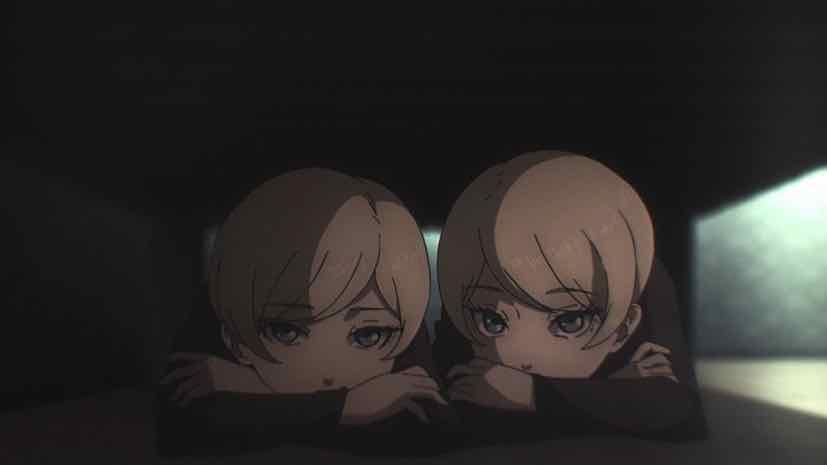 “Strange” is a- well, strange word. It’s generally used in a pejorative or at least neutral sense. But sometimes – almost exclusively with the arts, I think – it can be a compliment. And I think it applies to Migi to Dari in that sense. This series is strange in a good way. Singular, even. It looks at the world through a funhouse mirror but as is often the case when fiction uses that device, the result is very revealing about the real world. I’m intrigued more and more with each episode.
“Strange” is a- well, strange word. It’s generally used in a pejorative or at least neutral sense. But sometimes – almost exclusively with the arts, I think – it can be a compliment. And I think it applies to Migi to Dari in that sense. This series is strange in a good way. Singular, even. It looks at the world through a funhouse mirror but as is often the case when fiction uses that device, the result is very revealing about the real world. I’m intrigued more and more with each episode.
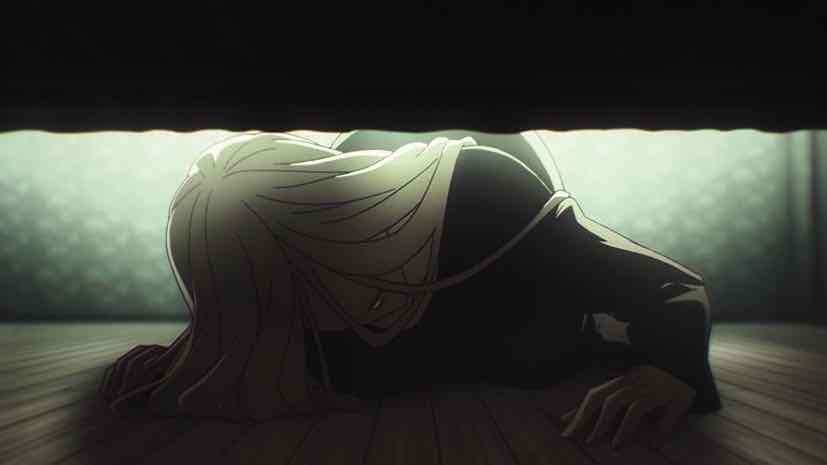 In the first place (though I’m repeating myself) Horie Shun and Murase Ayumu are doing an amazing job as the title characters. They’re having fun admirably, but they have to play a big range of styles here. These are kids, pubescents, from a strange (yes) background and with a skewed view of the world. The seiyuu have to project innocence, deviousness, fear, sinister rage… And we’re getting all of that. I also think the music (by Sebu Hiroko, who scored I Want to Eat Your Pancreas) is adding a lot to the mood. I haven’t read the manga but I suspect Migi to Dari is one of those series that works better in anime form.
In the first place (though I’m repeating myself) Horie Shun and Murase Ayumu are doing an amazing job as the title characters. They’re having fun admirably, but they have to play a big range of styles here. These are kids, pubescents, from a strange (yes) background and with a skewed view of the world. The seiyuu have to project innocence, deviousness, fear, sinister rage… And we’re getting all of that. I also think the music (by Sebu Hiroko, who scored I Want to Eat Your Pancreas) is adding a lot to the mood. I haven’t read the manga but I suspect Migi to Dari is one of those series that works better in anime form.
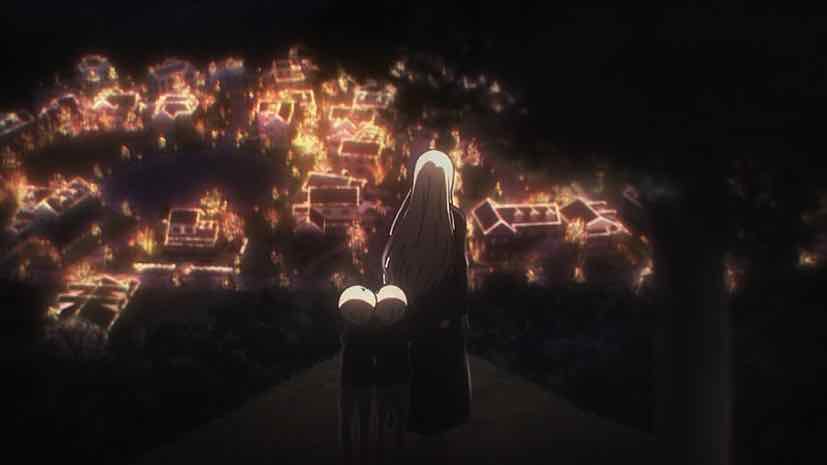 It’s also a fascinating setting, entirely fictional but eerily reminiscent of postwar America. Sano Nami picked a planned community in Kobe as, I suppose, the least unlikely place in Japan for such a world to exist, but it’s still pretty unlikely. What we have here, seems to me, is two paranoid little boys who’ve almost certainly got the wrong end of the stick when it comes to their mom. I’m almost sure she wasn’t murdered (I’m betting she was a maid who was fired), but Migi and Dari have constructed a narrative around that and by gum, they’re sticking to it. The joke – and like all the jokes here the line between humor and darkness is almost non-existent – is that the reality they’re encountering outside the orphanage is probably even darker and more twisted.
It’s also a fascinating setting, entirely fictional but eerily reminiscent of postwar America. Sano Nami picked a planned community in Kobe as, I suppose, the least unlikely place in Japan for such a world to exist, but it’s still pretty unlikely. What we have here, seems to me, is two paranoid little boys who’ve almost certainly got the wrong end of the stick when it comes to their mom. I’m almost sure she wasn’t murdered (I’m betting she was a maid who was fired), but Migi and Dari have constructed a narrative around that and by gum, they’re sticking to it. The joke – and like all the jokes here the line between humor and darkness is almost non-existent – is that the reality they’re encountering outside the orphanage is probably even darker and more twisted.
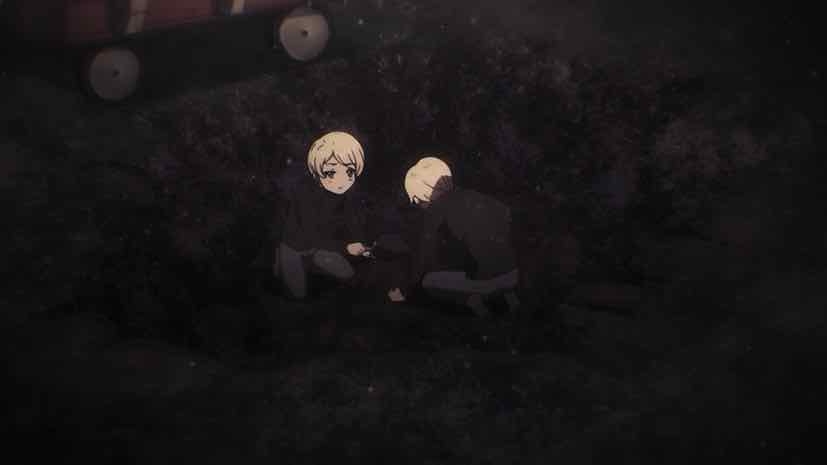 Yes, the petty cruelties of privileged life are squarely in the crosshairs here. Mom and Dad seem genuinely nice, just weird, but Origon Village is full of freaks. Is Sano-sensei having a pop at American consumerism and suburban deviancy here, or – perhaps more likely – at the Japanese obsession with aping Western ideas of “success”? The boys agree to join the boy scouts despite their reluctance, as it might mean a chance to get invited into people’s houses and check for the “water flea” (actually paisley) wallpaper they remember from their early childhood. And it’s from this that most of the episode’s weirdness springs.
Yes, the petty cruelties of privileged life are squarely in the crosshairs here. Mom and Dad seem genuinely nice, just weird, but Origon Village is full of freaks. Is Sano-sensei having a pop at American consumerism and suburban deviancy here, or – perhaps more likely – at the Japanese obsession with aping Western ideas of “success”? The boys agree to join the boy scouts despite their reluctance, as it might mean a chance to get invited into people’s houses and check for the “water flea” (actually paisley) wallpaper they remember from their early childhood. And it’s from this that most of the episode’s weirdness springs.
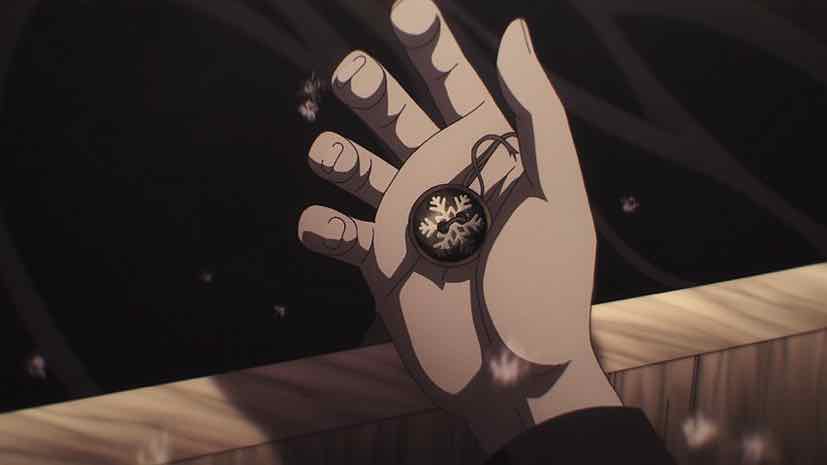 The whole boy scout thing is a real-life den of weirdness to begin with, don’t get me started. Here, the others scouts cruelly mock Hitori and his eagerness to make friends. Two of them challenge him to walk the tightrope without using the handrails, and even with a secret double it’s impossible for Hitori. But Akiyama-kun sees himself in a fellow outcast, and declares that he’ll be their friend. Hitori invites himself over, Akiyama agrees, and the true hijinks begin.
The whole boy scout thing is a real-life den of weirdness to begin with, don’t get me started. Here, the others scouts cruelly mock Hitori and his eagerness to make friends. Two of them challenge him to walk the tightrope without using the handrails, and even with a secret double it’s impossible for Hitori. But Akiyama-kun sees himself in a fellow outcast, and declares that he’ll be their friend. Hitori invites himself over, Akiyama agrees, and the true hijinks begin.
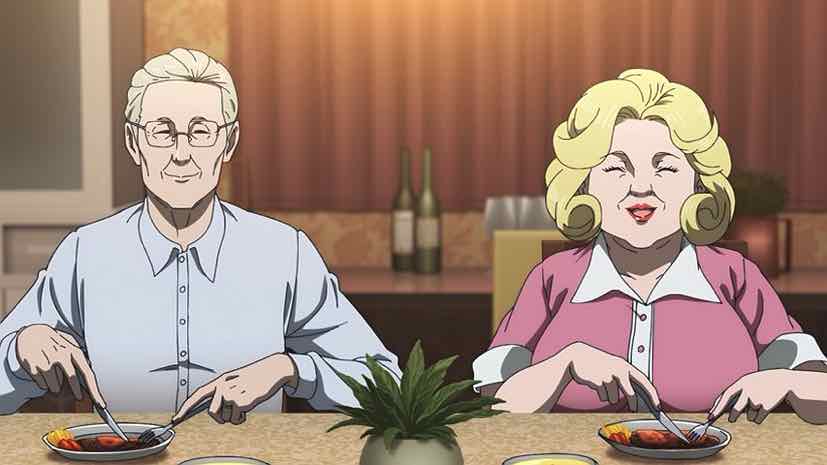 I noted last week the fascinating dynamic emerging between Migi and Dari, and it comes into sharper focus than ever. Dari is older, assumes himself to be the boss, and Migi harbors resentment over this. He is indeed the more emotional and naive of the two, though the gap is narrower than either realizes. He seethes at being the one to do all the dirty work while his brother is the front man with the cherry pie. But the payoff here is truly hilarious, as Akiyama goes into full freak mode as Migi gets an unexpected trip to second base while searching the big sister’s room. Two very different hugs – and Migi realizes that the bumpy road isn’t always the one you don’t want to be on.
I noted last week the fascinating dynamic emerging between Migi and Dari, and it comes into sharper focus than ever. Dari is older, assumes himself to be the boss, and Migi harbors resentment over this. He is indeed the more emotional and naive of the two, though the gap is narrower than either realizes. He seethes at being the one to do all the dirty work while his brother is the front man with the cherry pie. But the payoff here is truly hilarious, as Akiyama goes into full freak mode as Migi gets an unexpected trip to second base while searching the big sister’s room. Two very different hugs – and Migi realizes that the bumpy road isn’t always the one you don’t want to be on.
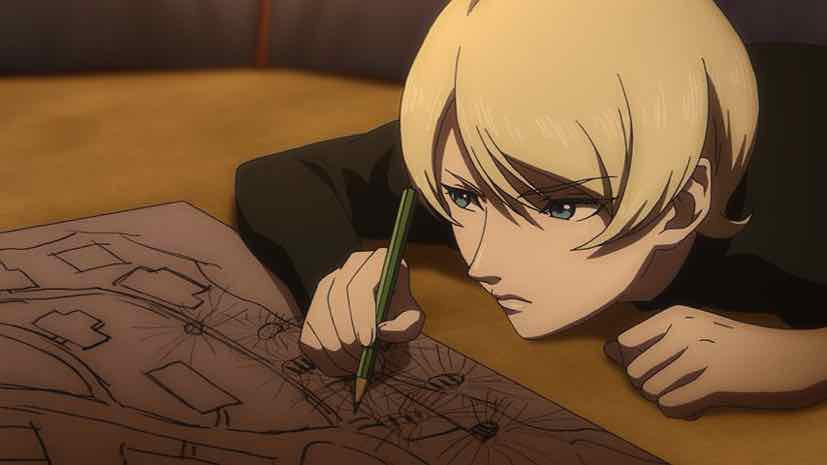 Next up is Maruta-kun, the buck-toothed kid with the Davy Crockett hat. He too is a freak – not a (seemingly) harmless one like Akiyama, but a sadistic punk. Migi very quickly regrets insisting on being the frontman for a change, and this gets quite ugly – especially when Dari takes the com and turns the tables on Maruta. Again the balance between light and dark has to be just right here, but the series does an admirable job of toeing it. One never feels quite secure in their footing, like Hitori on a tightrope, but that uncertainty is kind of exhilarating in a medium more than ever dominated by formula.
Next up is Maruta-kun, the buck-toothed kid with the Davy Crockett hat. He too is a freak – not a (seemingly) harmless one like Akiyama, but a sadistic punk. Migi very quickly regrets insisting on being the frontman for a change, and this gets quite ugly – especially when Dari takes the com and turns the tables on Maruta. Again the balance between light and dark has to be just right here, but the series does an admirable job of toeing it. One never feels quite secure in their footing, like Hitori on a tightrope, but that uncertainty is kind of exhilarating in a medium more than ever dominated by formula.


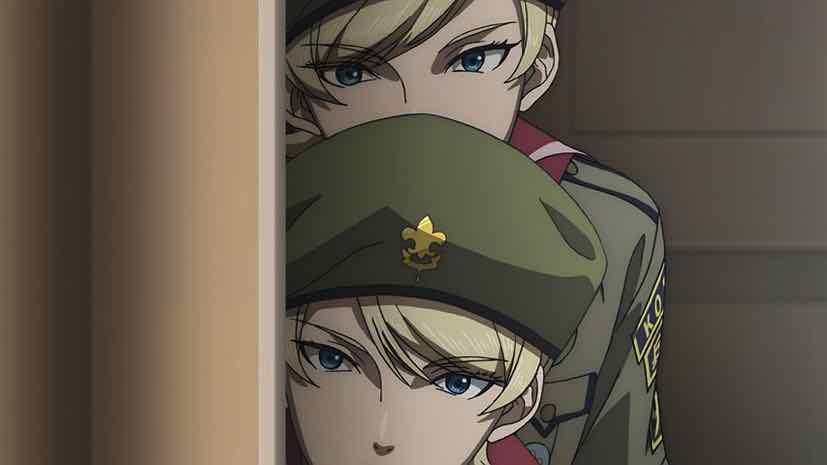
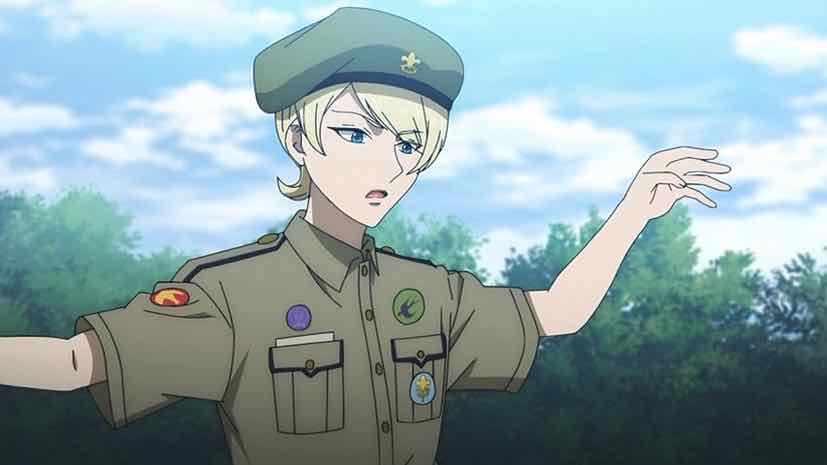
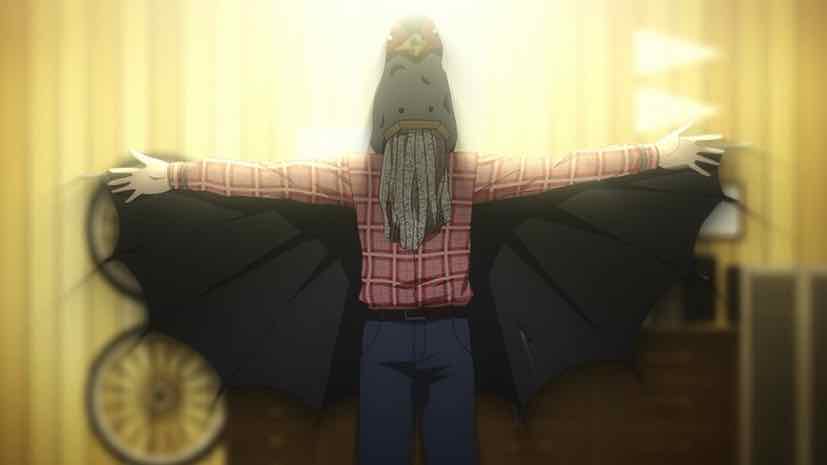
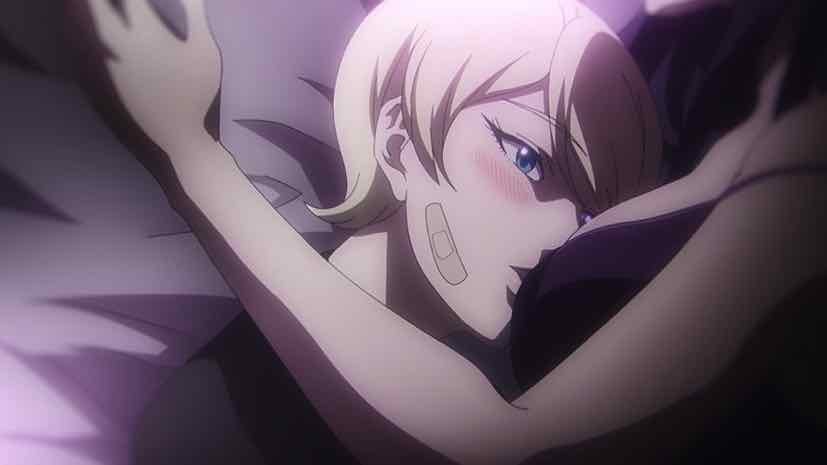
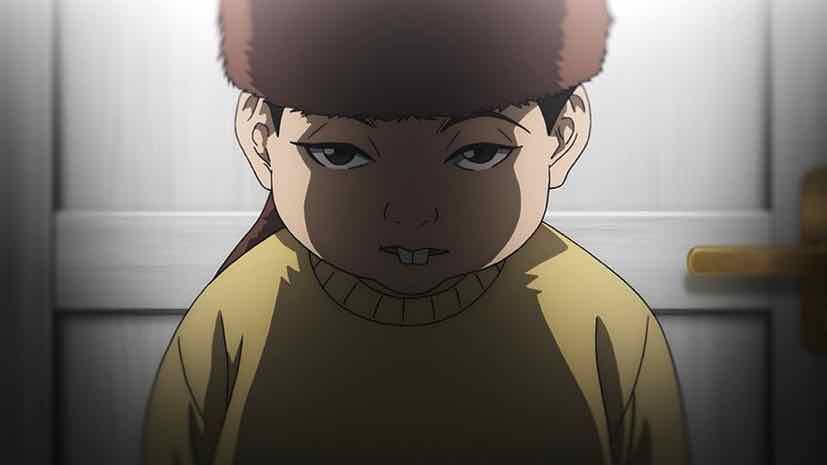
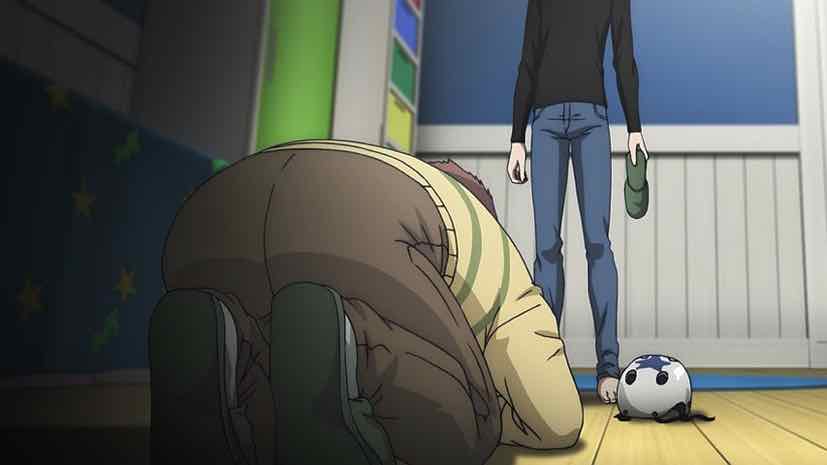
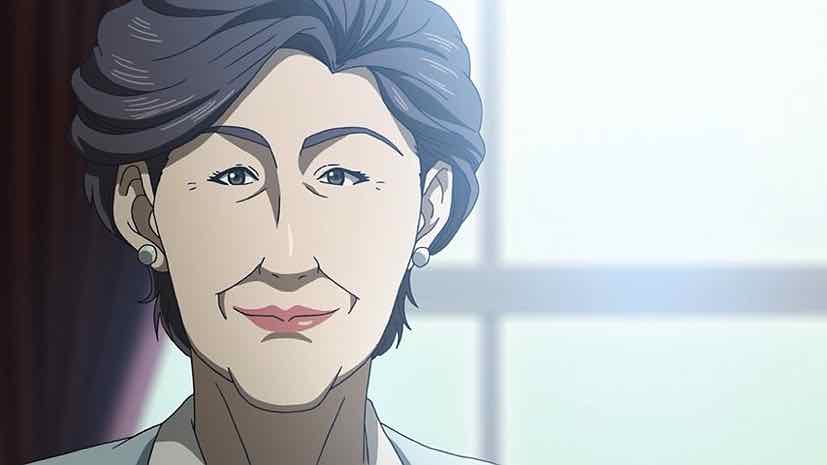
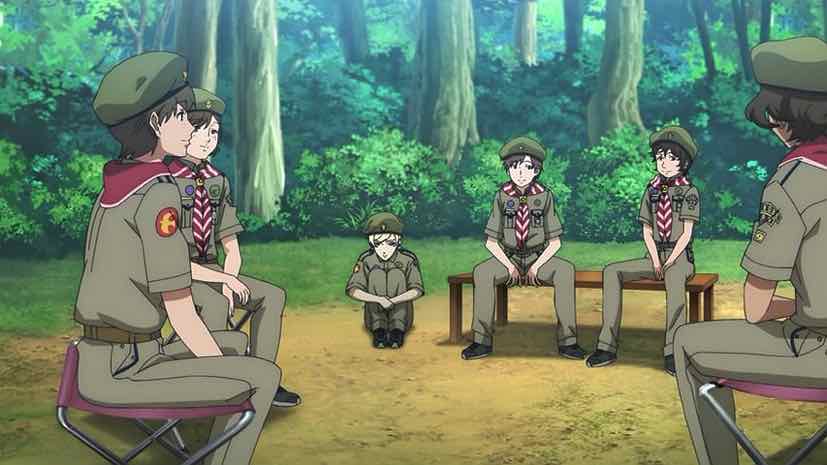
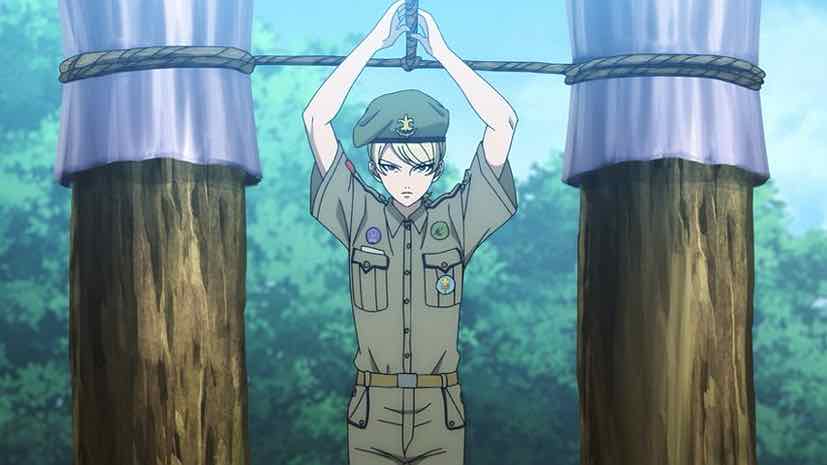
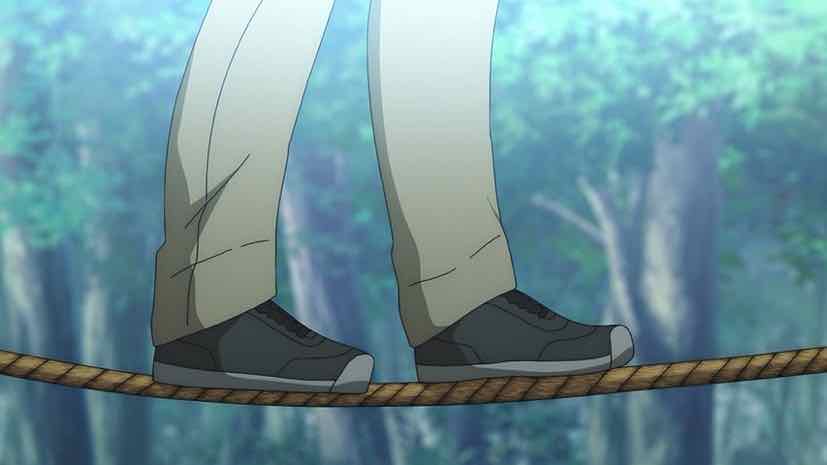
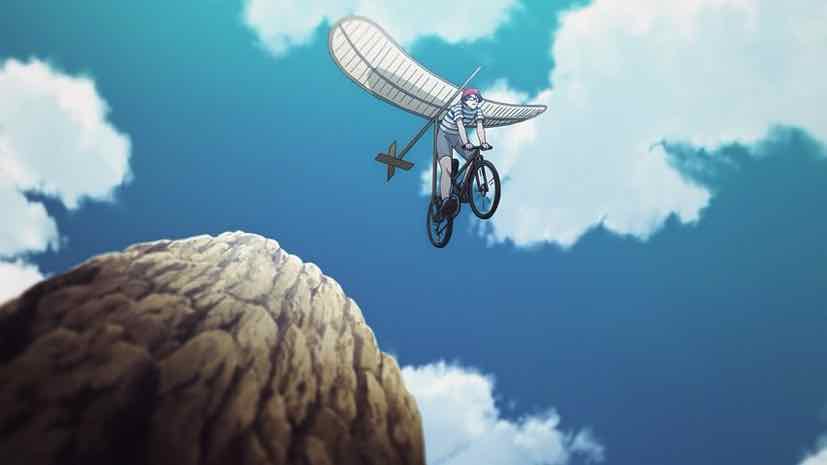
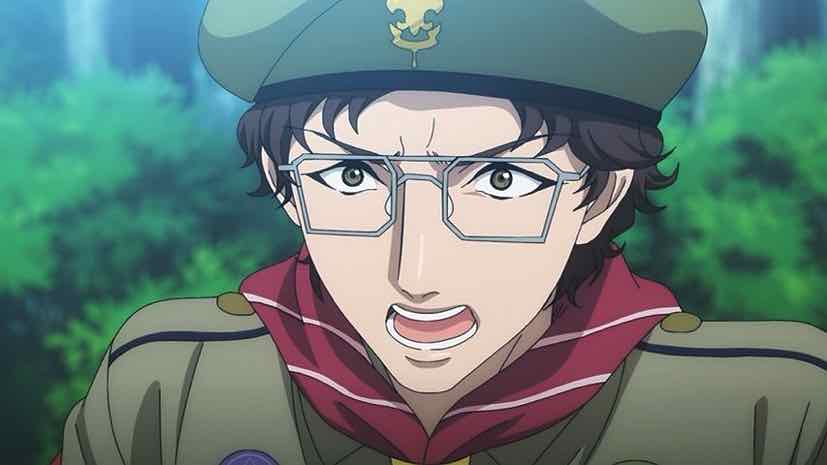
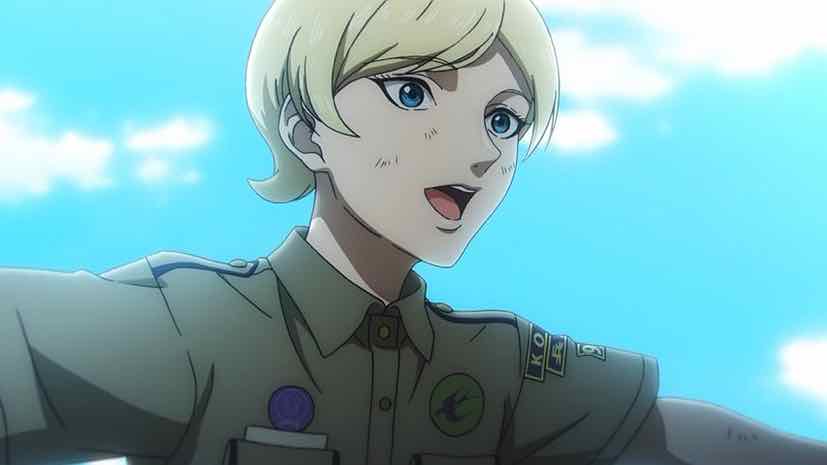
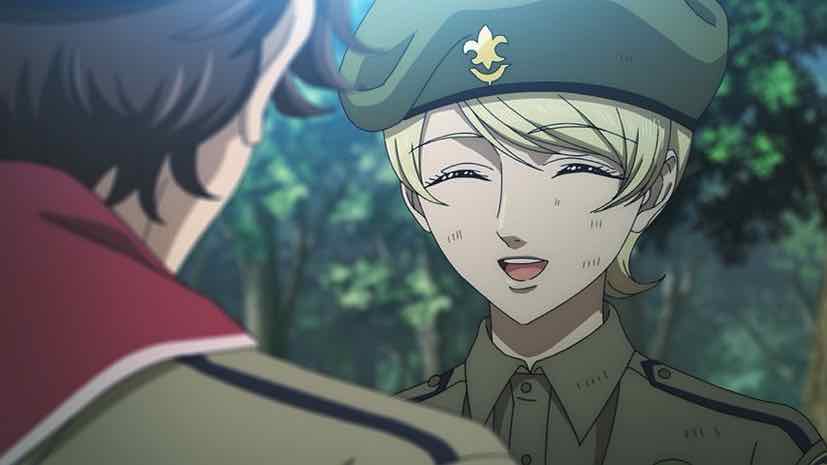

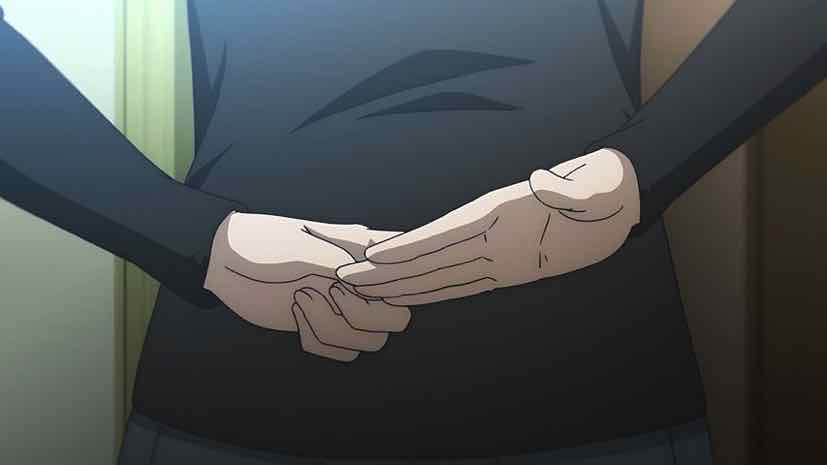
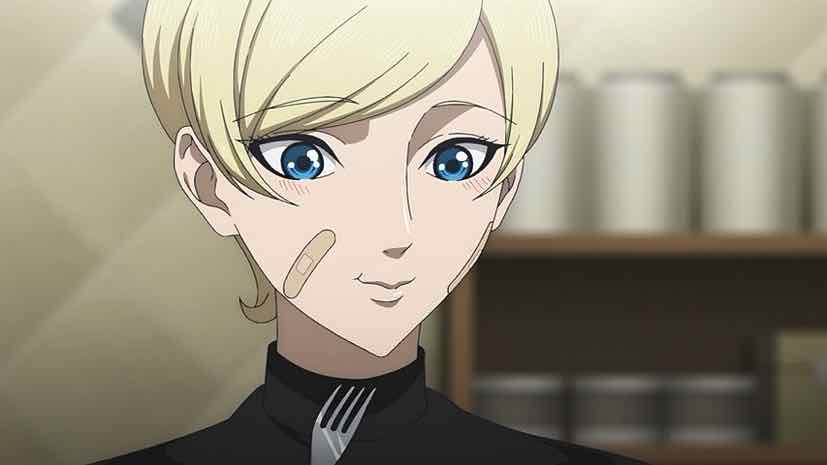
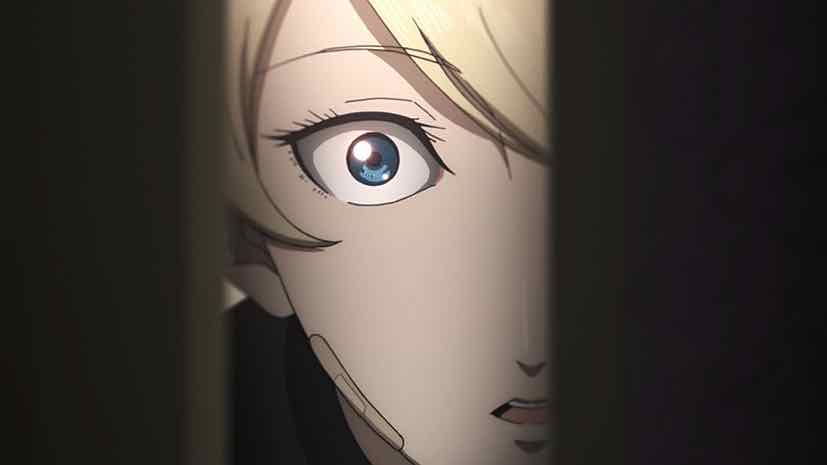
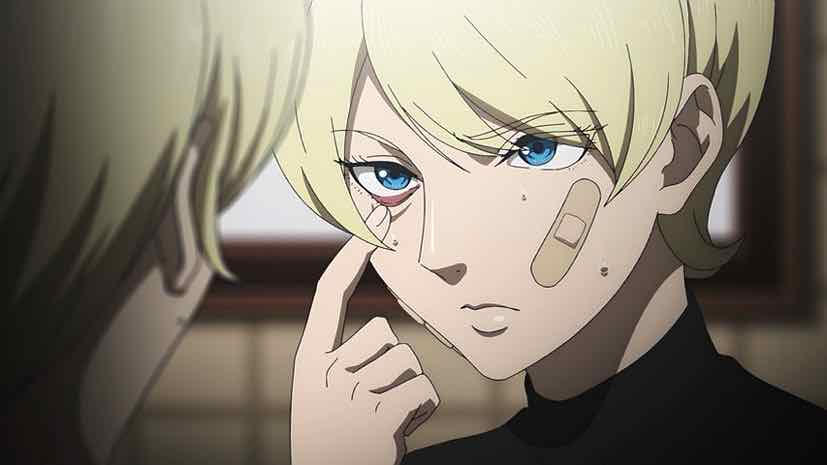
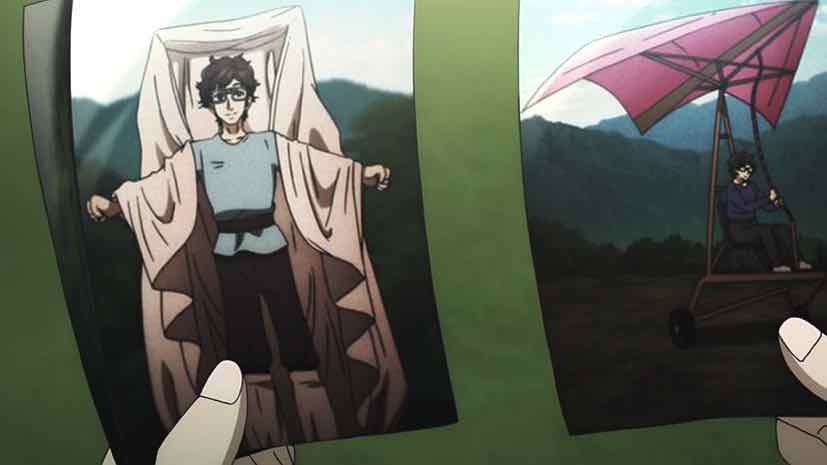

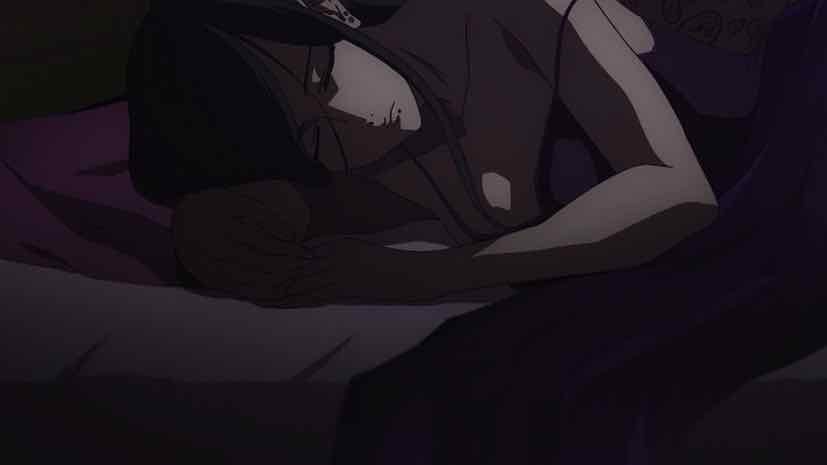
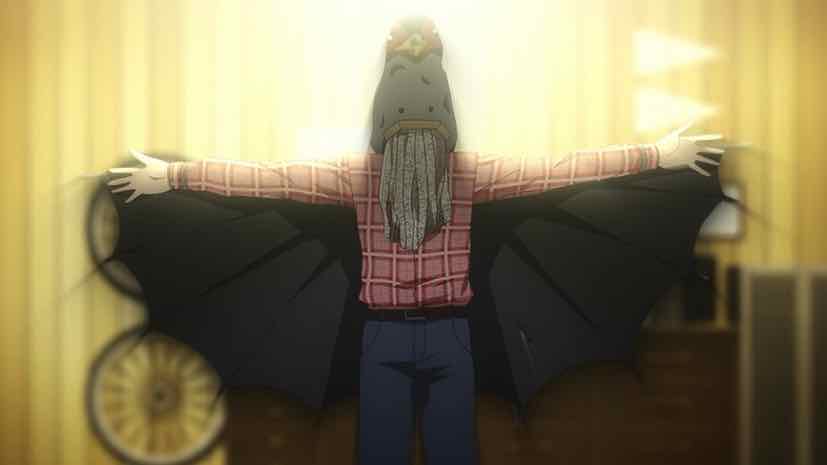
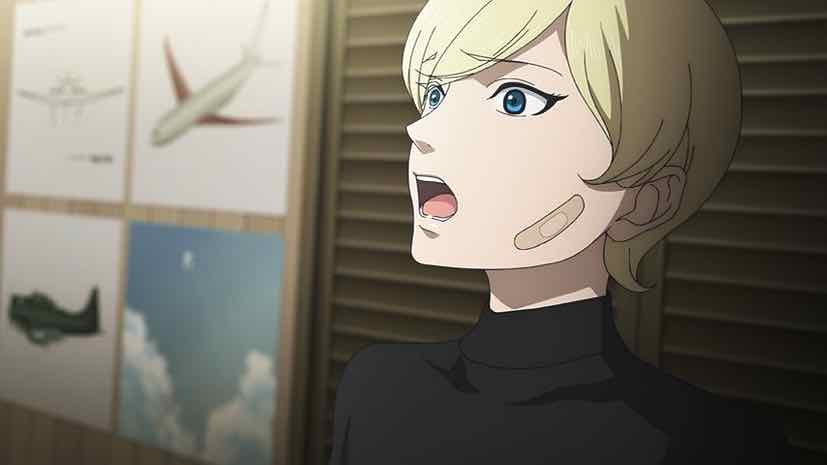
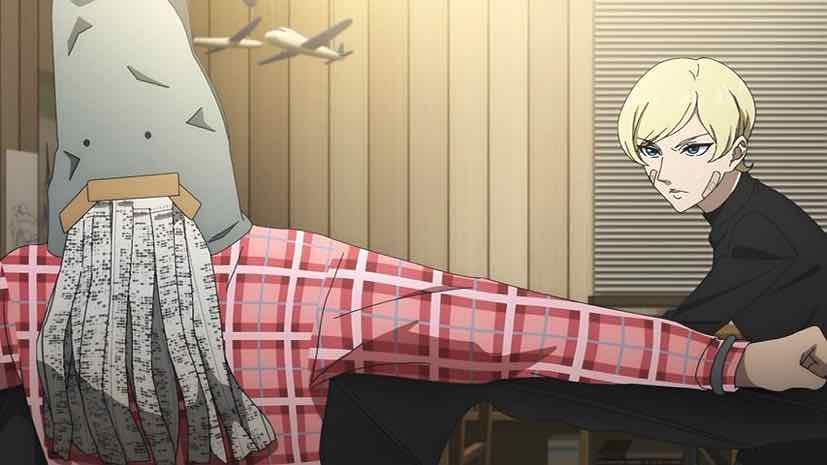
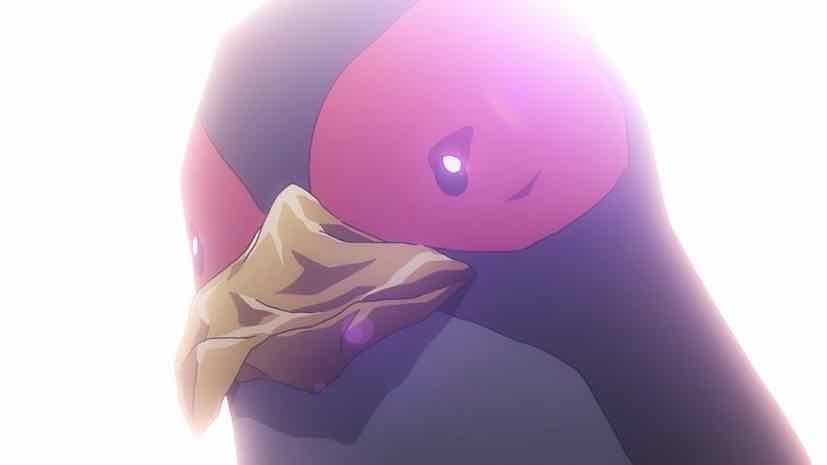
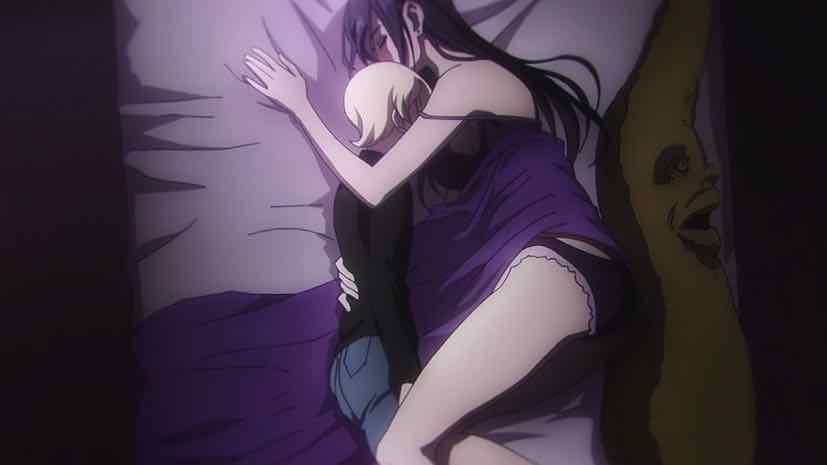
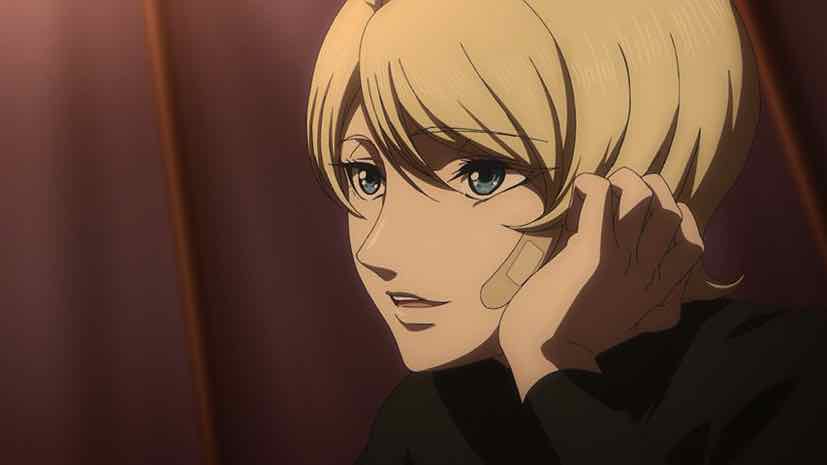
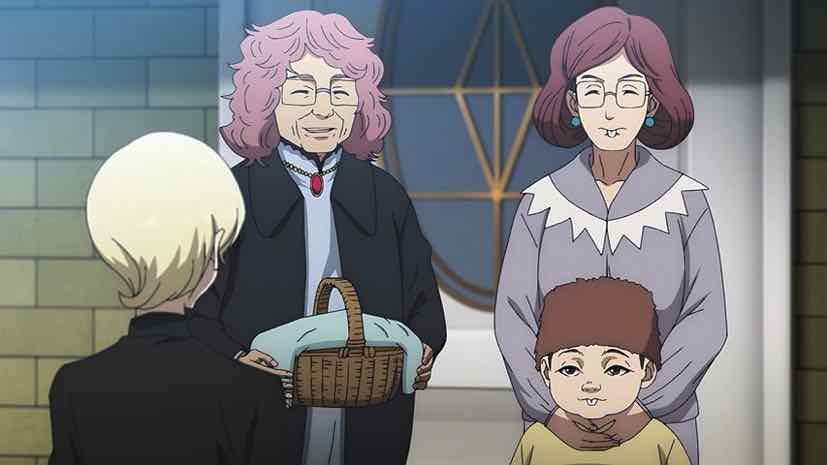
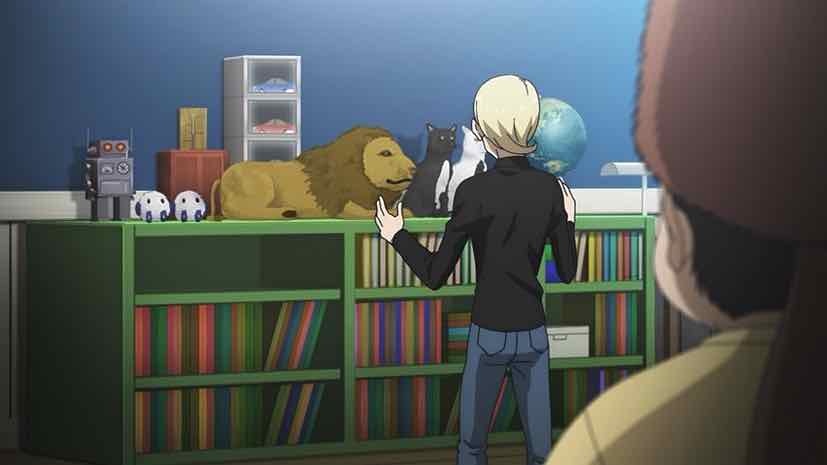
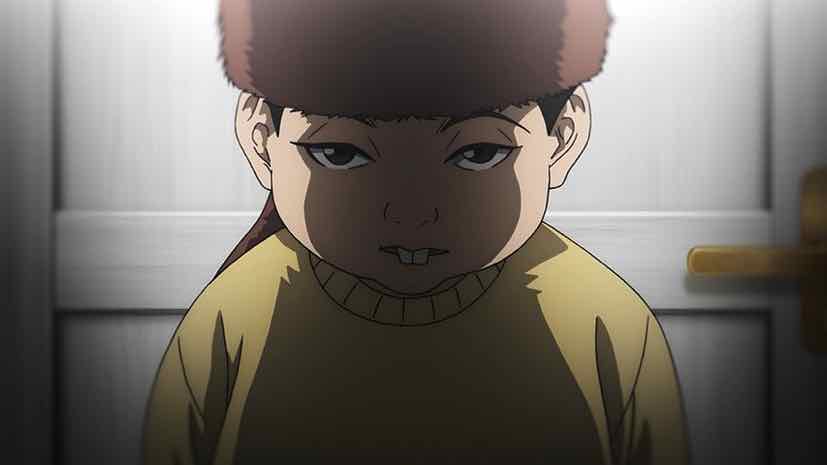
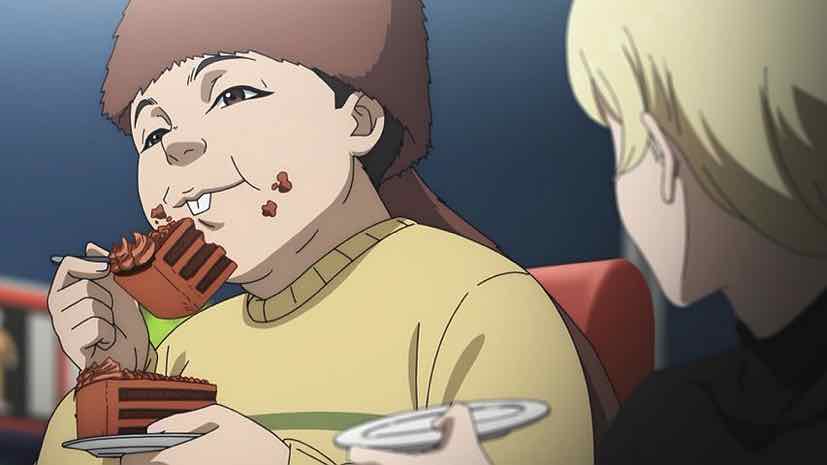
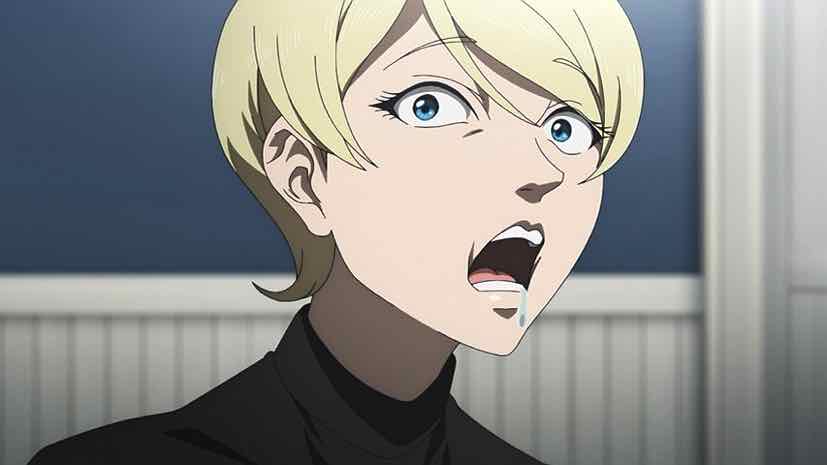
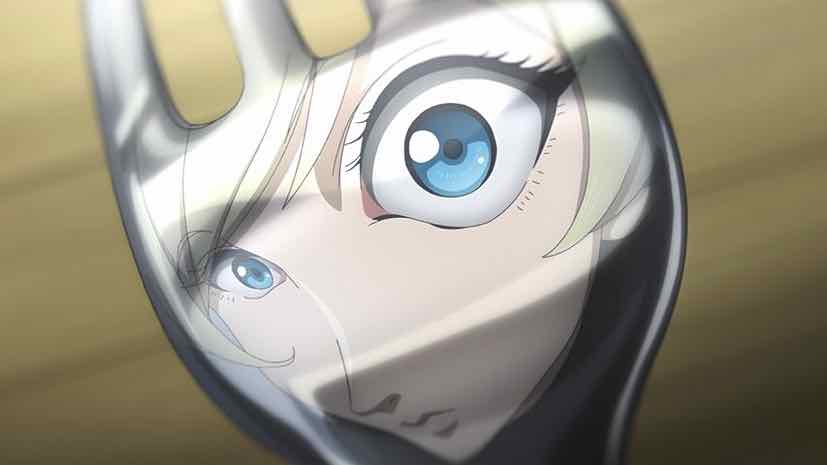
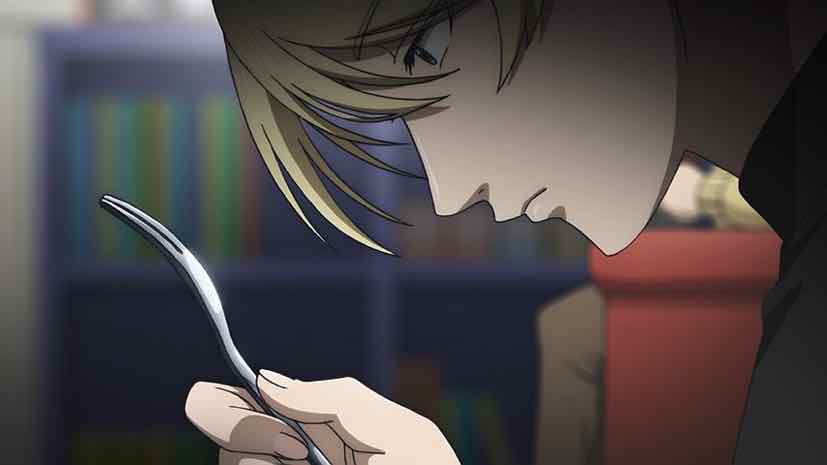
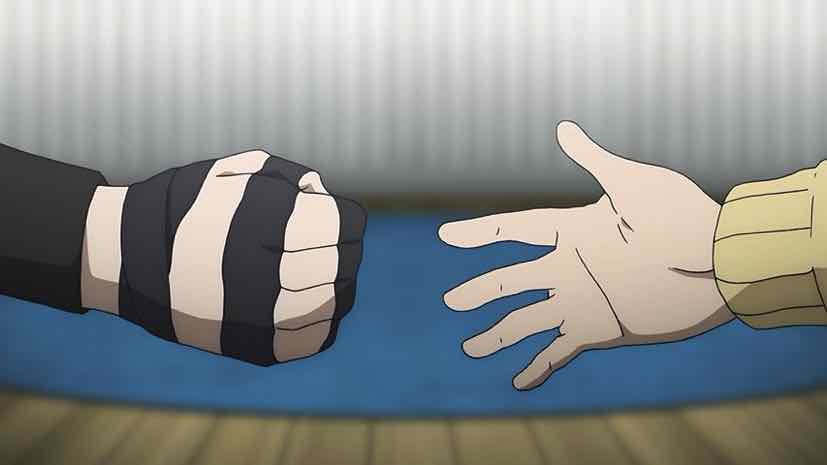
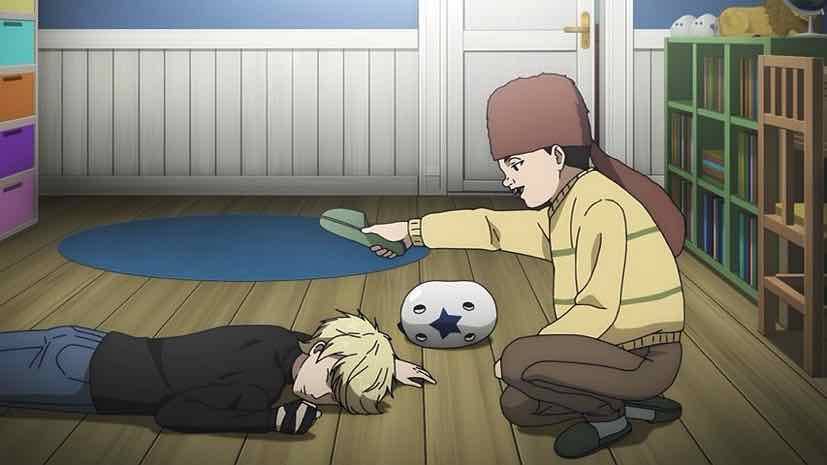
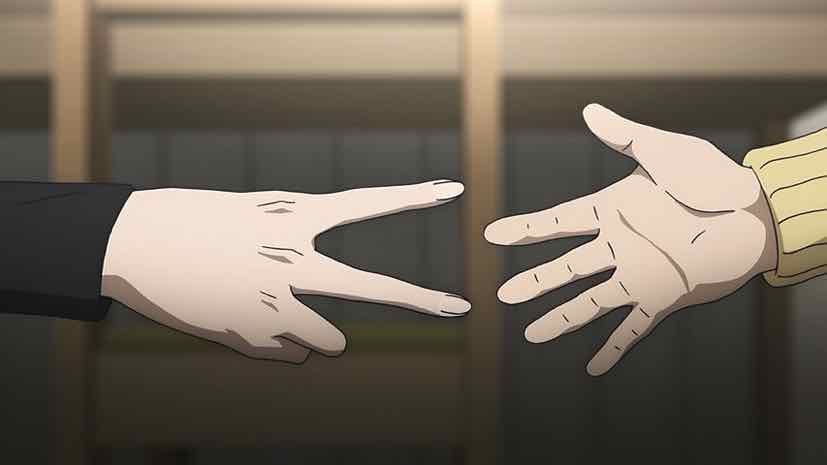
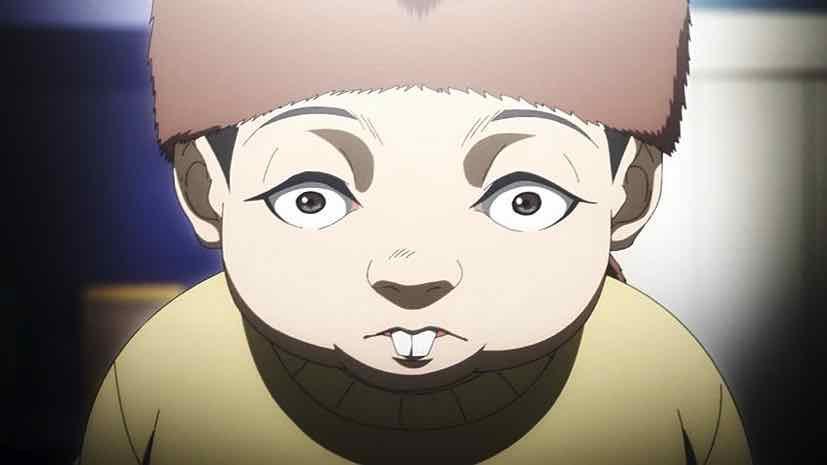
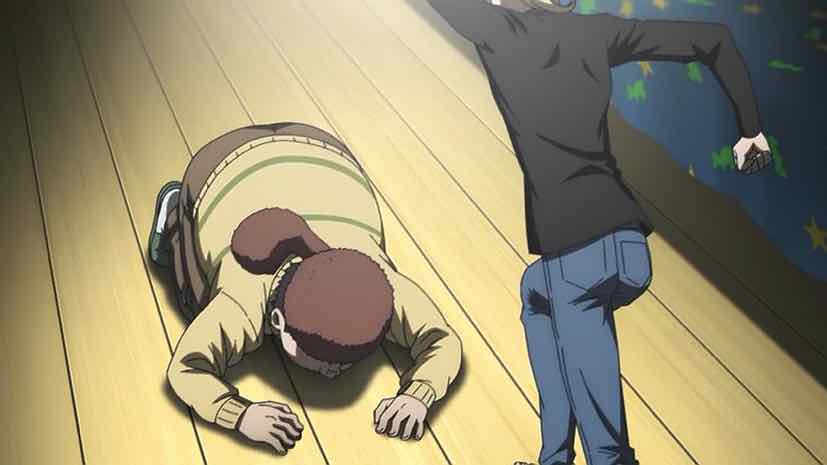
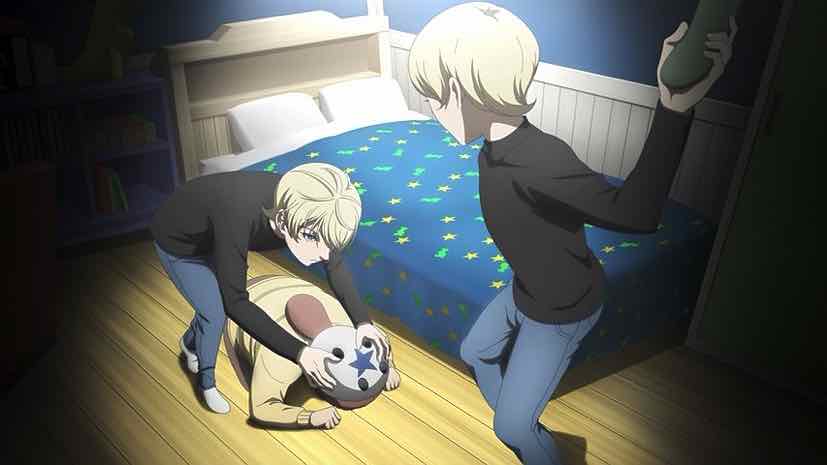
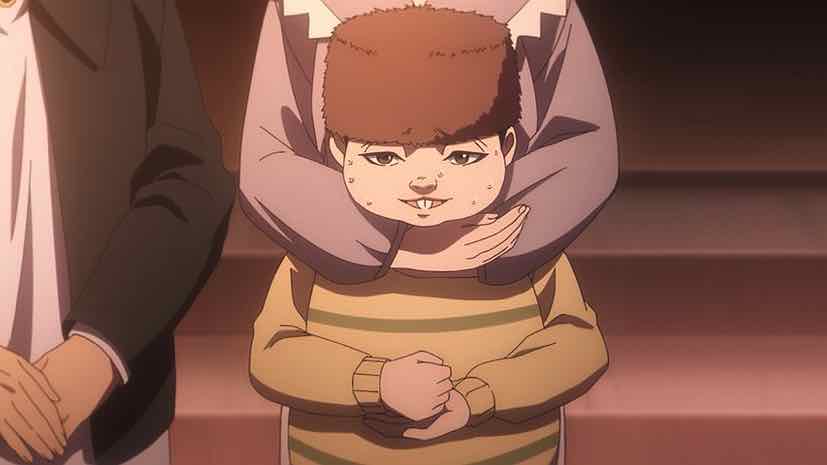


Joshua
October 17, 2023 at 11:17 pmNever have I imagined that Nami Sano would reference a Jan Švankmajer film. Specifically the surrealist 1996 comedy Conspirators of Pleasure that features a bizarre chicken outfit similar to the one Akiyama wears in this episode. https://mubi.com/en/ca/films/conspirators-of-pleasure
Guardian Enzo
October 18, 2023 at 6:30 amI’m gad you mentioned it, because I would never have gotten that one.
Simone
October 18, 2023 at 10:10 pmWhoa, a silent 1996 Czech movie about people indulging in fetishes that include a bird suit is an OBSCURE reference. But yeah, it looks way too spot-on to be a coincidence. Honestly the mix of anime comedy about smart kids overthinking things way too far (in the vein of Kaguya-sama) with Lynch-ian surrealism is really captivating me in this show.
Simone
October 18, 2023 at 10:10 pm(sorry, not silent – just with no dialogue. My bad)
Nicc
October 18, 2023 at 7:41 amIn this episode, the lads are out of their home for the first time and it made for a good world-building episode. They won’t be able to find solve the mystery of their mom just by being at home and so it’s time to get out into Origon Village. They’re looking for a room which has paisley (They always resembled paramecium to me) wallpaper. After initially turning down their parents, they do eventually join the Scouts (Thanks for the close-up image with their caps. It certainly resembles the logo for the Scout Association of Japan). The plan is to make friends and then get invited into their homes. It takes some work to get there as they are lacking social graces. Their eagerness to make friends puts them into the crosshairs for bullying. We also meet Akiyama, who himself is being shunned by the group. I takes the brothers many times to challenge the tightrope and it’s Akiyama who wants to make friends with “Hitori” and invites him to their home.
Yep, it’s still weird to see 50’s American surburbia in early 90’s Japan. I’m really curious to know what it’s like outside of the village. Yep, Akiyama is a little… off, which only seems fitting for this series. He wants to be a bird and even has the outfit. Dali keeps him occupied while Migi slinks around to find the paisley wallpaper. He finds it in the room of Akiyama’s sister, but it’s apparent that it’s not the home that they’re looking for. He does get a parting gift courtesy of his sister before the boys depart…
Well, scratch that house, but at least “Hitori” made a friend. Next, they visit the home of Maruta, whom we saw in an earlier episode for the welcoming party for “Hitori”. It looks like Maruta wants to play and get along, but then his true intentions come out. Despite being instructed to maintain his composure by Dali, it’s Dali who loses it and gives Maruta quite the being with the slipper. Perhaps in the end, they may be able to become friends on equal grounds. The end of the episode introduces a new character, the maid to their household, Mrs. Mitsuyama. We already have a cast of weirdos and so let’s see what she brings to the party.